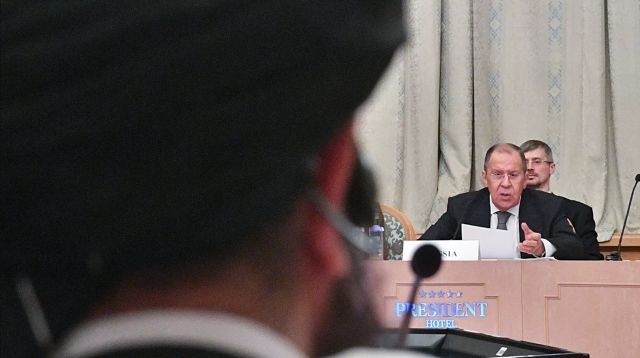The international conference on Afghanistan, known as the “Moscow format,” which took place in Moscow this week with the participation of representatives of the Islamic Emirate of Afghanistan, commonly known as the Taliban, illustrated what we have written about many times – the importance and difficulty of their international recognition as the legitimate authority of the country (https://golosislama.com/news.php?id=40101). Moreover, the content of this conference allows us to understand why the Taliban are so eager for this recognition, even though they already have effective military control over Afghanistan. One of the main reasons is the problem of blocking and consequently unblocking Afghanistan’s financial assets, which amount to about 8 billion US dollars and which, without the Taliban’s control over them, pose a threat of economic, social and even humanitarian collapse of the country. However, the ability or inability to solve this very specific and vital problem allows us to assess the effectiveness of the so-called “Moscow format” very clearly.
The “Moscow format” for discussing the “Afghan issue” is currently recognized by 11 countries: in addition to Moscow (Russia), these include China, Pakistan, Iran, India, Kazakhstan, Kyrgyzstan, Uzbekistan, Turkmenistan, Tajikistan and Afghanistan itself. As can be seen, the United States is not among these countries, as its representatives ignored the conference held this week, despite being invited. However, at different times, the Americans have shown different attitudes to the “Moscow format,” which was initiated in 2018 under the previous US President Donald Trump.
All the participants of the conference called for unfreezing Afghanistan’s financial assets to prevent the country’s collapse. However, these calls have no practical significance, as they were blocked by the US, and no one but them is capable of unblocking them and transferring them to the control of the new Afghan authorities. Hence the need for their preliminary recognition in one form or another.
The Moscow officials, who organized this conference and played a leading role in it, presented it as if the initiative for the international settlement of the Afghan question is currently in the hands of Moscow, which conducts such events. But is it really so? It seems not. And not only because Moscow is fundamentally incapable of ensuring that the Americans unfreeze the Afghan government’s assets or providing the new authorities with access to comparable assets. Equally important is the fact that it is currently unable to make any progress in terms of international recognition of the new Afghan authorities.
However, if Moscow cannot achieve the first, it is within its power to achieve the second – if it wants to. But it seems to lack this desire. That is why, first and foremost, Moscow does not recognize the Taliban as the legitimate authority in Afghanistan, which is demonstrated by its protocol and symbolic attitude towards its representatives. For example, the official delegation of the Taliban that arrived in Moscow was not only not met by Vladimir Putin himself, but was not even received at the Foreign Ministry building, as is usually the case with official delegations of recognized countries. Instead, the conference was held in a hotel (not an airport). The conference organizer, Sergei Lavrov, addressed the Taliban representatives as a “distinguished delegation.
It is also important to note that Lavrov once again presented the Taliban with demands regarding the conditions for their international recognition, which have already been expressed by leaders and representatives of several other countries. In particular, he stated that one of these conditions is the formation of a “truly inclusive government in Afghanistan, representing not only ethnic but also political forces in the country. It would be humorous if it were not so sad – that someone would demand this – think about it – from a representative of Putin’s Russia…
Taking all the above into account, one should not overestimate Putin’s statement during the Valdai Club meeting that Moscow is considering the possibility of excluding the Taliban from the Russian list of terrorist organizations. First of all, considering does not mean excluding. Secondly, there is a big difference between not considering someone a terrorist and recognizing them as the legitimate authority of a country.
Therefore, for the time being, Moscow is calling on the international community to cooperate with the Taliban in order to solve Afghanistan’s problems and prevent a humanitarian catastrophe in and around Afghanistan, which the EU and the US are already doing without its help. And even though Moscow is calling on the U.S. to unfreeze the assets of the Afghan government for the Taliban, why not demand it if they are not its assets?
So it seems that Moscow can’t offer the Taliban anything they couldn’t get without it in terms of solving the problem of international recognition. In essence, it is trying to play the role of a mediator between them and the West by making the same Western demands to them. However, neither the West seems ready to see Moscow in this role, nor does Moscow want to influence the West in this direction.
In that case, why do the Taliban need such a mediator when they still have to deal with those they are trying to represent without having a mandate to do so?
* Banned in the Russian Federation

